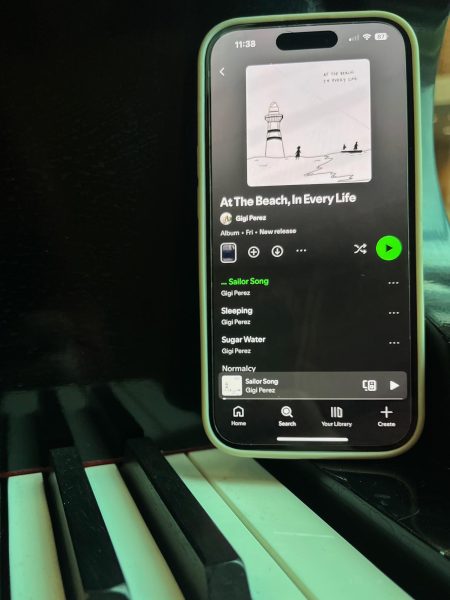Humanities and sciences help better society
I am an English major. I’m not even an English Education major. I spend most of my time reading about reading and writing, and writing about writing and reading. I plan to move on to grad school and spend the rest of my life doing this and other bookwormy things.
I will not invent the cure for cancer. I will not ride in a spaceship to Mars. I’m not going to discover any new species of plants or animals. I’ve chosen to pursue a career in the humanities and arts, not the STEM fields. And I will contribute just as much to society as my STEM major peers.
It’s easy to get caught up in the STEM fields versus humanities debate. Pretty much any college student who declares a major automatically aligns him/herself with one of the two. On the bigger scale, it makes sense that the STEM fields and humanities would fight each other as groups, too. Both want funding from their institution and both believe themselves to be just as worthy, if not more so, than the other.
I don’t think there should be a debate though. Sure, it’s fun to puff out our chests and chant something along the lines of “I’m better than you are,” but it’s not true.
Both fields have contributed to society. Both fields are important. Without the STEM fields, we wouldn’t have things like the computer I’m writing this on or antibiotics or answers to climate change. Without the humanities, we would not have outlets for catharsis, ways to make people care about issues, and ways to speak about our own perspectives. Both are necessary for a healthy and happy society.
Even though I’m about as close to atheistic as you can get without actually being an atheist, I firmly believe we all are here to contribute to the whole. We all can make the world better for each other.
The STEM fields allows human beings to stretch our minds in the realm of what can be possible. It takes a literal approach to “how can we make the world better?” Engineering a water filtration system that provides clean water to those in need is certainly one way. Modifying crops to produce bigger and healthier yields in another. They each make the world better for all of us through science, technology, engineering and math.
As for the humanities, the approach becomes far less. The “how can we make the world better?” question becomes less about the literal and more about the theoretical. In English, I study the ways of the people who’ve come before me so that I can apply those lessons to the ways we’re going now. In theater, an actor puts on another face in order to understand the outlook of another person. In visual art, a painter teaches children how to let their feelings out on a canvas rather than just bottling them up. These things don’t have immediate effects the way the STEM fields do in the public eye. The new iPhone is much easier to understand than the newest modernist poem, after all.
But there are effects. They teach us to care, to listen, to learn. It is almost funny that we fight over which field is more important and useful when our goal is the same.
There is a reason arts and science all go into one college. They are intertwined in ways that we as individuals cannot begin to fathom — but we can try to. The perfect example of this is music. To many of us, music is that stuff we listen to while we’re driving, when we’re working out or when we’re crying into a pint of ice cream after a breakup. It provides atmosphere, suggests moods and inspires feelings. But music is, at it’s very core, math. It is sound waves mashed together to create a pleasing sound that is then applied to a pattern (the beat, rhythm) of other sound waves.
In the end, the STEM versus humanities argument ends up being nothing more than a sibling squabble. We’re all in this together and all equally important.
Kjerstine Trooien is a staff writer for The Dakota Student. She can be reached at kjerstine.trooien@my.und.edu.






